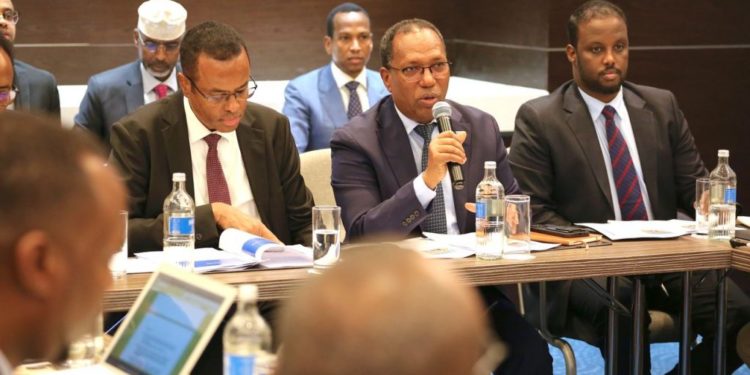After a decade of negotiations and reforms, Somalia has successfully secured a remarkable USD 4.5 billion debt write-off from global lenders. The debt forgiveness, granted under the enhanced Heavily Indebted Poor Countries (HIPC) Initiative, exempts the nation from debt repayment obligations.
Multilateral and bilateral lenders, including the World Bank and the International Monetary Fund (IMF), played a crucial role in this significant move. Somalia’s debt has been substantially reduced from USD 5.2 billion to USD 600.0 million. According to the World Bank, Somalia’s external debt has now decreased to less than six per cent of its gross domestic product (GDP), down from 64.0% in 2018.
The debt relief breakdown reveals that commercial creditors contributed the most significant portion, USD 3.0 billion, followed by multilateral creditors at USD 573.1 million, the World Bank’s International Development Association at USD 448.5 million, IMF at USD 343.2 million, and the African Development Fund at USD 131.0 million.
Somalia’s journey to debt relief faced political and economic challenges, with HIPC discussions initiated a decade ago under President Hassan Sheikh Mohamud. The World Bank country manager for Somalia, Kristina Svensson, acknowledged the country’s commitment to reforms, describing Mogadishu’s dedication as “remarkable.”
The debt write-off provides a historic opportunity for Somalia to move forward after three decades of conflict, fragility, and state fragmentation. It is expected to unlock concessional and climate financing, revive investor confidence, and restore correspondent banking relationships, facilitating cross-border transactions and global financial integration.
In recent weeks, Somalia achieved notable milestones, including joining the East African Community as its eighth member and the lifting of the United Nations arms embargo, allowing the arming of police and military forces.
While celebrating the achievement, the World Bank emphasizes the need for Somalia to continue implementing key reforms in debt management and take measures to enhance economic growth and domestic revenues. Somalia’s Finance Minister, Bihi Iman Egeh, expressed optimism about attracting foreign investors, improving the investment environment, and strengthening efforts in fighting international terrorism.
The debt write-off signifies a turning point for Somalia, providing an opportunity for economic reconstruction, poverty reduction, and inclusive growth. However, it also underscores the importance of sustained reforms to avoid sliding back into debt distress.


















